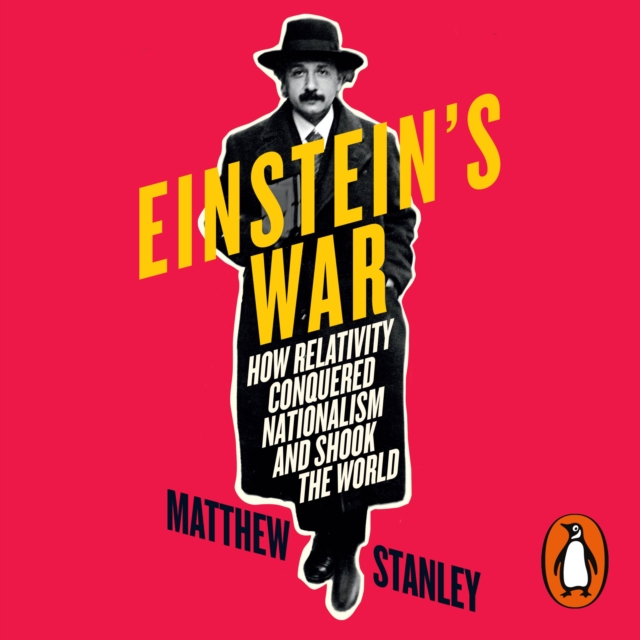
Einstein's War : How Relativity Conquered Nationalism and Shook the World eAudiobook MP3
by Matthew Stanley
Narrated by Matthew Stanley
eAudiobook MP3
Description
Penguin presents the audiobook edition of Einstein's War written and read by Matthew Stanley.
In 1916, Arthur Eddington, a war-weary British astronomer, opened a letter written by an obscure German professor named Einstein. The neatly printed equations on the scrap of paper outlined his world-changing theory of general relativity.
Until then Einstein's masterpiece of time and space had been trapped behind the physical and ideological lines of battle, unknown. Eddington realized the importance of the letter - perhaps Einstein's esoteric theory could not only change the future of science but also restore the world of cooperative international science in a time of brutal war. This was the moment that relativity emerged from the trenches before it was known around the world.
Einstein's name is now synonymous with 'genius', but it was not an easy road. He spent a decade creating relativity and his ascent to international celebrity, which saw him on the front of papers around the world in 1919, also owed much to Eddington - who he only met after the war - and to international collaboration. We usually think of scientific discovery as a flash of individual inspiration, whereas here we see it is the result of hard work, gambles and wrong turns and all the while subject to the petty concerns of nations, religions and individuals.
Einstein's War teaches us about science through history, and the physics is more accessible as a result - we see relativity built brick-by-brick in front of us, as it happened 100 years ago.
Information
-
eAudio Download - Immediately Available
- Format:eAudiobook MP3
- Run-time:0 hours 0 mins
- File size:0MB
- Publisher:Penguin Books Ltd
- Publication Date:23/05/2019
- Category:
- ISBN:9780241379561
Other Formats
- Paperback / softback from £9.99
- EPUB from £5.99
- Hardback from £13.15
Information
-
eAudio Download - Immediately Available
- Format:eAudiobook MP3
- Run-time:0 hours 0 mins
- File size:0MB
- Publisher:Penguin Books Ltd
- Publication Date:23/05/2019
- Category:
- ISBN:9780241379561






